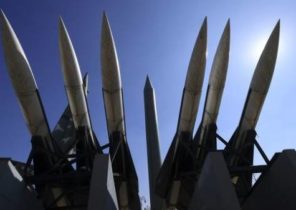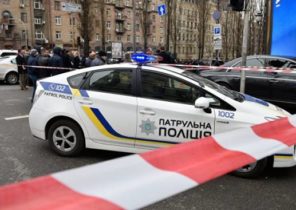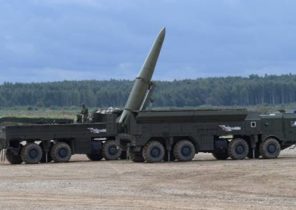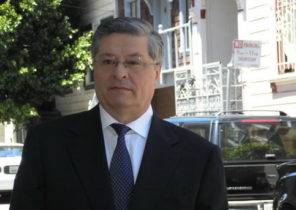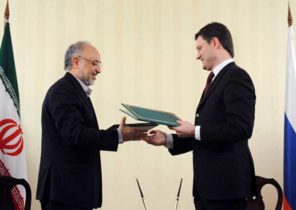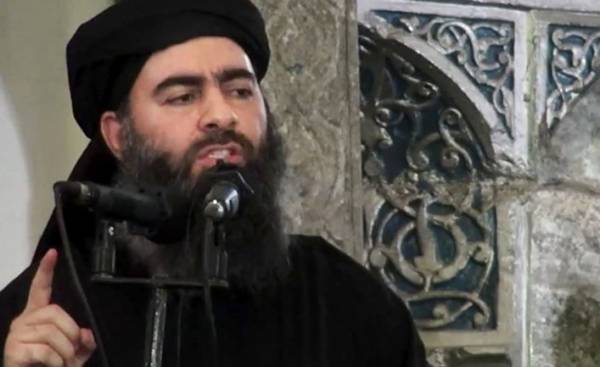
Friday, June 16, the Russian defense Ministry said that the airstrike that took place on 28 may, the Russian military managed to destroy the leader of ISIS (a terrorist organization banned in Russia — approx. ed.) to Abu Bakr al-Baghdadi (Abu Bakr al-Baghdadi), who was the most wanted terrorist in the world.
If confirmed, the death of Baghdadi would be an important symbolic blow against ISIS, depriving the organization of its Supreme leader who declared himself head of the Caliphate and called on Muslims worldwide to join him.
Meanwhile in the past about the death of Baghdadi was reported several times, but each time the message was about. Thus, we have good reason to doubt the statement of Russia.
1. Even the Russians themselves did not believe in the death of Baghdadi.
The Ministry of defence announced that it is investigating the death of Baghdadi. Commenting on the announcement of his death, during a press conference on Friday, June 16, foreign Minister Sergei Lavrov said: “While I have absolute confirmation of this information — about the destruction of the Abu-Bakr al-Baghdadi”.
According to the news Agency TASS, Lavrov was skeptical about the assumption that killing Baghdadi would be a powerful blow to the Islamic state. “All the examples of this kind of stock destruction, decapitation of terrorist groups was always served with great fanfare, but still experience shows that these structures have restored their combat capability, and still continues the activity of these structures in the face of ISIS, “al-Qaeda” and its many incarnations, including the “Dzhabhat EN-Nusra” (terrorist group forbidden in the territory of the Russian Federation — approx. ed.)”, — he said.
2. Previous statements about the death of Baghdadi has since been refuted.
In 2014, about the death of the leader of ISIS was reported several times, but each time this information was refuted. In November 2016, ISIS has published an audio recording of a voice Baghdadi, apparently to refute the information about his death. ISIS has not yet announced the death of their leader. First, when the key leaders of the ISIL were killed, the group declared them martyrs.
June 10, Syrian state TV channel said that Baghdadi was in raqqa, the actual capital of the “Islamic state” at a moment when government forces attacked it a shot. According to American officials, Baghdadi is now carefully hidden. According to experts, he is taking all precautions to not use near a cell phones to avoid detection, and do not use bodyguards, so as not to attract attention.
3. In the past, Russia has made unsubstantiated claims about the destruction of the leaders of ISIS.
In the past Russia has tried to claim that she managed to achieve serious successes in the fight against ISIS is obviously trying to increase its role in the fight against this group, on the background of the military coalition led by the United States.
In August 2016, ISIS has announced that its chief propagandist and strategist Abu Muhammad al-Adnani (Abu Mohammed al-Adnani) died in the Syrian province of Aleppo. The Pentagon said it launched an airstrike against Adnani in the town of al-Bab, outside Aleppo.
After a few days the Russian government has said that Adnani was killed in an airstrike by the Russian military. U.S. officials have rejected this statement. One official of the U.S. defense Department even called it a “joke”. Commenting on this dispute, the special representative of the President of the United States Brett Mcguirk (Brett McGurk) said in November 2016: “the Russians tried to take credit for its abolition because it is a very important milestone. I can assure you that it did not Russian, it made our coalition”.
4. Misinformation is the basis of Russian foreign policy.
For many years Russia has used deception and disinformation to influence the perception of its strategic advantages. Reviewers specializing in Russian foreign policy, argue that the use of false information is a systematic and conscious, and that this tactic is used at all levels, from official government statements and reports from the state media before social media posts. The techniques of disinformation, apparently, have been used in the operations of Russia in Georgia and Ukraine, as well as in debates around the alleged attempts of Russia to affect the outcome of the US presidential election. In the report of the RAND Corporation this stream of misinformation has been called “a fire hose of lies.”
And Russia’s intervention in the Syrian conflict is no exception. When in 2016 it began its bombing campaign in Syria, Russian officials said that their operations have targeted ISIS, but the nature of the operations pointed to something else. Russia has inflicted its air strikes mainly at those areas which were in the hands of rebel groups fighting as President Bashar al-Assad, and ISIS. As a result of those air strikes killed numerous civilians.
Another example of the misleading statements, the Russians may serve as an announcement of Russian President Vladimir Putin, which he made in March 2016, Russia’s decision to withdraw most of its forces from Syria due to the fact that the goal of the campaign was achieved.
Russia has resumed air strikes in Syria later in 2016 — this time on rebel-held parts of Aleppo, with the result that in December, the rebels were forced to surrender. This was one of the milestones in five-year conflict. The resumption of the offensive showed that the previous statements by Putin about the withdrawal of the military was just another attempt to seize the initiative from rivals such as the USA, Turkey and some other countries supporting opposite sides of the Syrian conflict.
